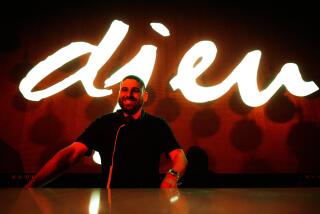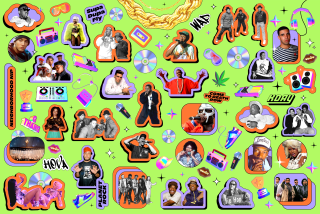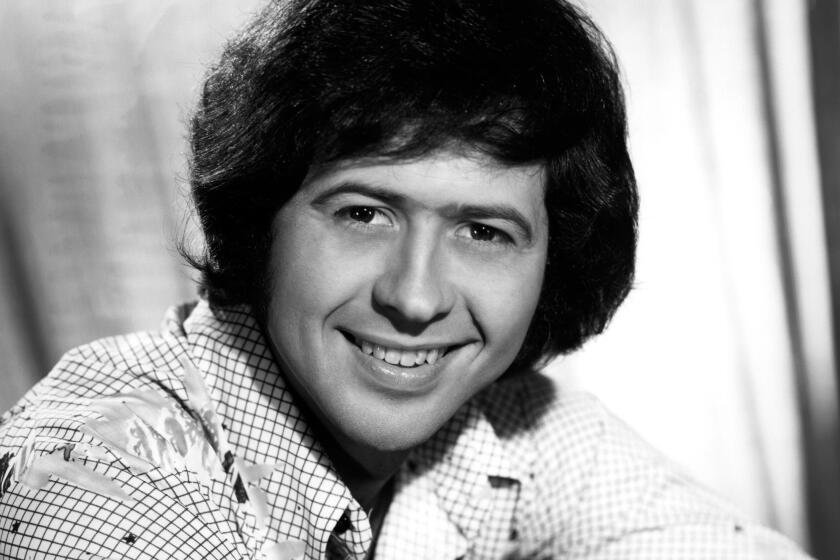Notes From the Underground
- Share via
In the decade since Raymond Leon Roker masterminded an offbeat 24-page freebie music ‘zine out of his L.A. studio apartment, URB has morphed into an internationally distributed, 164-plus-page monthly glossy with an estimated circulation of about 75,000. URB (short for “urban”), which turned 10 in January, grew out of the club scene devoted to electronic and hip-hop music, and now also covers house and soul along with art, technology and club life. Roker’s staff numbers 19, and the booming enterprise recently moved into spacious 4,200-square-foot offices with custom contemporary furniture in Silver Lake. At 32, the polite, savvy publisher who doubles as a deejay and boasts two arrests for graffiti tagging is an elder statesman in the youth culture he inhabits and helps to define.
*
Has URB distanced itself from its underground roots?
We’re obviously a business venture, but we pick really underground music. Ten years ago, we were right about bands like Prodigy and Moby. But in the last few years, we’ve concentrated more on niche culture stuff. Our business model is mainstream, but we’re still very underground.
You now work with a public relations firm and have a marketing endeavor. How have these changes impacted URB?
We now can extend past the printed page. We’ve launched a marketing group, Rebel (Rebel Organization Inc.) that expands URB into records, radio and the Internet. We’re launching a record label, URB Music. It’s really cool.
Has your audience changed over the years?
They are young urban music enthusiasts who are at home with music and technology and electronically fueled progressive youth culture. It’s a diverse group. The median age is 24. Ten years ago they were primarily West Coast. We and our audience have broadened. It’s extraordinary how music has blossomed into a global culture with hip-hop and techno.
How do you keep current with youth culture?
Being a deejay is good for me. At 32, it’s not as easy to go out at night as it used to be. But I’m booked from Colorado Springs to Hawaii. I do a couple of gigs a month. I opened recently at the Greek. I do warehouse parties and down and dirty parties just for kids. I go out to music conferences. I’ve gone to England several times. England opened my mind. And New York. That club scene helped me connect all the dots.
Is the club scene different overseas?
The Europeans really know how to do clubs. In the Italian culture everyone listens to techno. European club scenes are much more a part of life than they are here in terms of fashion, stylishness, color, fabric. The places are over the top. They’re in places with pools, in villas, with incredible equipment. People are wearing spandex and platform shoes. Sometimes music is about context. Like jungle in South London and Manchester, where the deejays are perfect. Or techno in Berlin. That’s the way techno was meant to be. It’s perfect.
More to Read
The biggest entertainment stories
Get our big stories about Hollywood, film, television, music, arts, culture and more right in your inbox as soon as they publish.
You may occasionally receive promotional content from the Los Angeles Times.








